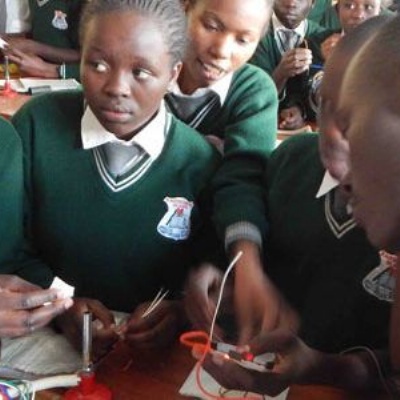David Moinina Sengeh, (Sierra Leone, UWC Red Cross Nordic 2004-2006), (UWC Red Cross Nordic 2004-2006), a Sierra Leonean Biomechatronics engineer at the MIT Media Lab, is an inventor, founder and President of Global Minimum Inc. (GMin), an international charitable organization that encourages young innovators and leaders in Africa to engage with critical thinking skills and hands-on learning programs to tackle challenges affecting their communities. GMin provides enabling tools, safe space, workshops, mentorship, resources and network, ultimately equipping young people in Africa with unique opportunities to take their future into their own hands. GMin through their flagship project, Innovate Challenges – a mentoring program created to inspire a culture of innovation and self-sufficiency among high-school students, is currently operational in Sierra Leone, Kenya and South Africa working with young people age 13-18.
In December 2015, The Lemelson Foundation, an organisation that believes that invention can solve many of the biggest economic and social challenges of our time, embarked on a major partnership with GMin by investing $ 766,100 (Ksh.76 million) in GMin for the period of 2016 to 2019. In partnership with The Lemelson Foundation over the next three years, GMin will launch three Innovation Labs and expand their Innovate Challenge program in Kenya, enabling young learners to develop problem-solving, collaboration, and critical thinking skills, and provide a model for learner centred, participatory, and project-based approach to education.

